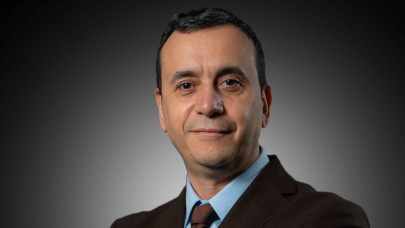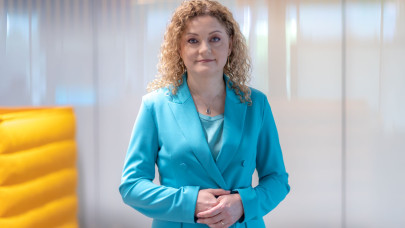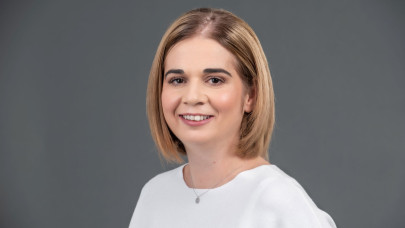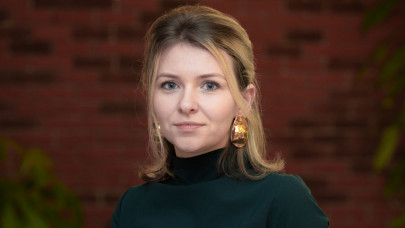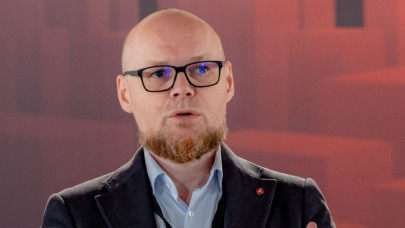What are the priorities of Ariston in terms of sustainability investments?
As the founding father Aristide Merloni famously said, in any industrial scheme economic success is worthless if it isn't matched by social progress efforts. It is around the concept of providing social progress that Ariston has been building its business for the last century, always investing in innovation and research, always searching for new and increasingly performant solutions aimed to provide everyone, in every corner of the world, with high-quality heating and hot water solutions, while protecting the environment
Today, Ariston remains committed to championing sustainable comfort, with massive investments in technological innovation, with a focus on renewable and high-efficiency solutions.
Ariston Group's sustainable growth remains an absolute priority and the company has already renewed its commitment to achieving sustainability through the set of environmental, social, and governance targets that will shape the agenda of future development.
The company recently announced an ambitious ESG plan. How does the current economic and energy crisis impact your ESG plans/ambitions? There is a risk for any ambitious project to remain on paper – did you consider this a negative scenario?
Indeed, Ariston Group has recently presented its ESG vision and goals for 2030 within Road to 100, a strategic plan manifesto of the group's commitment to sustainability.
Road to 100 is the result of a structured process that involved the group's main internal and external stakeholders in identifying five different areas of engagement:
1. Solutions;
2. Operations;
3. People & Communities;
4. Customers;
5. Governance.
These five areas translate into ESG commitments the group's five corporate values: Believe in sustainability; Inspire through excellence; People come first; Start from customers; Act with integrity.
To reduce its carbon footprint, Ariston Group sets specific goals: achieving the ultimate objective of 100 million tons of CO2e emissions avoided by 2030 thanks to its renewable and high-efficiency solutions sold, abating by 42% its Scope 1 and Scope 2 emissions, and reducing by more than 50% its Scope 3 emissions per million euro of value added.
As 98.25% of its CO2e footprint is associated with the emissions produced by the use that households and businesses make of its sold products, Ariston Group continues to invest in technological innovation to expand its range of renewable and high-efficiency smart Solutions and make available to its customers state-of-the-art heat pumps with natural refrigerants, hybrid and hydrogen products, and cutting-edge technologies such as Demand Response and Home Energy Management.
In the meantime, Ariston Group works to mitigate the impact of its Operations by enhancing resource productivity, progressively implementing a circular approach, as well as engaging responsibly with its supply chain.
Ariston Group's pledge to sustainability also encompasses the social sphere. The group takes excellent care of its People and the Communities it operates in and undertakes to ensure a sustainable working environment for all its employees worldwide and to raise global awareness of the importance of thermal comfort for sustainable living.
The ability to anticipate its Customers' needs remains at the core of the Ariston Group's efforts: guaranteeing maximum proximity while providing professionals and consumers with trustworthy quality products are confirmed as the key pillars of Ariston Group's serving policy.
Eventually, Governance is considered as a fundamental business longevity enabler and Ariston Group focuses on adhering to the highest standards and best practices, to continue to make progress in diversity, pay equity, risk management, tax strategy, and business conduct.
How are consumer expectations/preferences different in Romania (and Eastern Europe) compared to those in other parts of Europe?
I would say that there are two major trends to note for the consumers in our area.
The first is the increasing attention to energy-efficient solutions. The energy crisis forced consumers to pay more attention to saving energy and there is also a noticeable and growing concern for the environment. The most recent EUROSTAT data confirm that local consumers pay more and more attention to environmental issues. In line with this increasing concern, Romanians tend to choose solutions related to thermal comfort to counter pollution more than average EU citizens. The solutions they chose include replacing older energy‐intensive equipment (hot water boiler, oven, dishwasher, etc.) with newer equipment with a better energy efficiency rating (for instance products labeled A+++) or changing the home heating system from a higher-emission system (e.g. coal, oil or wood-fired) to a lower one (natural gas, pellets, electricity, solar, etc.)
Another trend we are noticing among consumers worldwide is the growing appetite for technology and solutions that embrace connectivity. I would say that in this chapter Romanians in particular benefit from the advantage of a very good Internet infrastructure.
There are other factors that we need to take into consideration as well. For instance, Romanian consumers still have a low purchasing power compared to citizens from Western Europe and this clearly influences their ability to purchase new, more energy-efficient technology. While it is true that as science progresses, environmentally friendly solutions become more affordable, in the short term we believe that there is an urgent need for the state to play a more important part and use subsidies as a tool to encourage people to purchase new technology.
What are the greatest challenges your company fears regarding ESG and generally? What are the most incredible opportunities in the current turmoiled context?
We faced many challenges in the last three years – the COVID-19 pandemic, the components shortage, the energy crisis, the economic crisis, and the war in Ukraine. All of these created a very volatile context in which it is hard to predict the future. So, I would mention the unpredictability that was fueled by the social and economic context among the greatest challenges that we face.
But it is also this unpredictability that represents, in my view, one of the most important opportunities as it forces companies to rethink their business, to use creativity more than ever before, to innovate and become more flexible, more agile, and more sustainable. From this perspective, Ariston Group is very well positioned, as the company holds a special place for innovation and invests in this direction.
At the beginning of this year, you purchased CENTROTEC Climate Systems GmbH, a company whose brands are known for their innovative approach. Is this acquisition a testament to Ariston's commitment to sustainability?
Indeed, at the beginning of the year, Ariston successfully concluded the acquisition of CENTROTEC Climate Systems – the biggest acquisition announced in Ariston Group's history and a milestone in the company's efforts to achieve sustainability in thermal comfort. Centrotec operates through four renowned brands: Wolf is a pioneer in the development of new-generation heat pumps with natural refrigerants (R290) characterized by high efficiency and low noise levels; together with brands Pro-Klima and Ned Air, it also successfully operates in air handling, offering high-efficiency systems for flow control and air conditioning in commercial applications; lastly, Brink is a prominent European player in domestic heat-recovery ventilation – a requirement for nearly-Zero-Emission Buildings.
Furthermore, as far as Ariston is concerned, we believe in heat pumps as a technology for the future. The company enhanced its production capacity for heat pumps and in 2022 it renewed the electric heat pump platform across all core European markets, releasing improved efficiency and low-noise performance products that leverage low Global Warming Potential refrigerants. Electrification is confirmed as the main pillar of the European building decarbonization strategy and remains at the core of our efforts. As such, Ariston has been supporting the energy transition through the development of hydrogen, high-efficiency, and hybrid solutions; and we have invested in digitalization and the IoT, upgrading our products with advanced connectivity features, to reduce consumption while further enhancing the user experience.
Former Environment Minister Tanczos Barna said he was planning to ban boilers, but the current minister put the decision on hold. What is your view regarding this topic? Is Romania still a market for boilers? Do you expect to see them disappearing or being completely banned in the future?
We are convinced that the future belongs to energy-efficient solutions that incorporate innovation and research. This is why we have been investing for years in this direction and all the changes we have witnessed in society in the last years make us confident that the transition to new technology will take place sooner than expected and at a more accelerated pace. However, it is obvious that things cannot happen overnight, mostly in Romania where according to official data a third of the households (almost 2.5 million) are heated directly with natural gas, using apartment boilers or even stoves with extremely low energy capacity (at least 250,000 homes). Romania has always been at a crossroads, between rapid developments in the West and a need to make up for time lost. We may skip some steps to gain speed, but we cannot do it overnight. At this moment, Romanian households rely on the gas network and gas-working products for heating, such as boilers. So completely banning boilers is not an option at this point, but we totally support and encourage state policies that support the transition to more efficient, more environmentally friendly technology.
Looking towards the future, we know the rising stars of the moment are heat pumps, but it is important to keep in mind that they are not the only effective means of ensuring thermal comfort. Ariston brought to Romania a wide range of condensing boilers and boilers that operate with a mixture of 20% hydrogen. They incorporate technology and innovation that make them more efficient and more environmentally friendly, and even if their footprint is not as small as that of heat pumps, the fact that they are much more affordable from a financial point of view makes them a very viable solution for the medium term.
How do you see thermal comfort ten years from now in Romania? Do you expect to see major changes?
It is clear that we, as a society, are going through very transformative times and I am convinced that we are just at the beginning of a revolution of natural resources that will forever change the way we consume and the way we live. We foresee major changes in this regard and Ariston – who has been investing in research and innovation for a very long time – has what it takes to embrace the future and deliver state-of-the-art technology that can provide unlimited comfort with very limited resource consumption. At this moment, the future of thermal heating relies on heat pumps and boilers running on Hydrogen mixed with gas. But, as technology advances so fast, who knows what we will talk about in 3 years' time? What I can say for sure is that Ariston's research department is working tirelessly to develop new and environmentally friendly solutions.
The heat pumps are now a hot topic. Do they have the potential to become the number 1 choice of Romanian consumers in terms of thermal comfort? Could they replace the current /existing options (like boilers)?
As mentioned above, heat pumps have been the rising stars of energy-efficient technology. However, despite their growing popularity and indisputable advantages, they are still in the early stages of their existence, and their cost remains, for many, unaffordable. We are confident that, as technology progresses, their cost will also adjust but until this happens, the state authorities can and must play a very important role through a very wise and long-term oriented subsidies policy. There are countries in Western Europe where the state has been doing so for almost a decade and the results are obvious. The Romanians' appetite for new, more advanced, and efficient technology is counterbalanced by their smaller purchase power, which makes it even more important for the authorities to act. And the main way in which the authorities can play a role is through subsidies. We are fully aware that the resources are limited (even more now, in times of economic hardship), but this is exactly why we have been advocating for the coherence of initiatives to support the population in the purchase of energy-efficient products so that the resources allocated by the state are consumed in the most efficient way.


